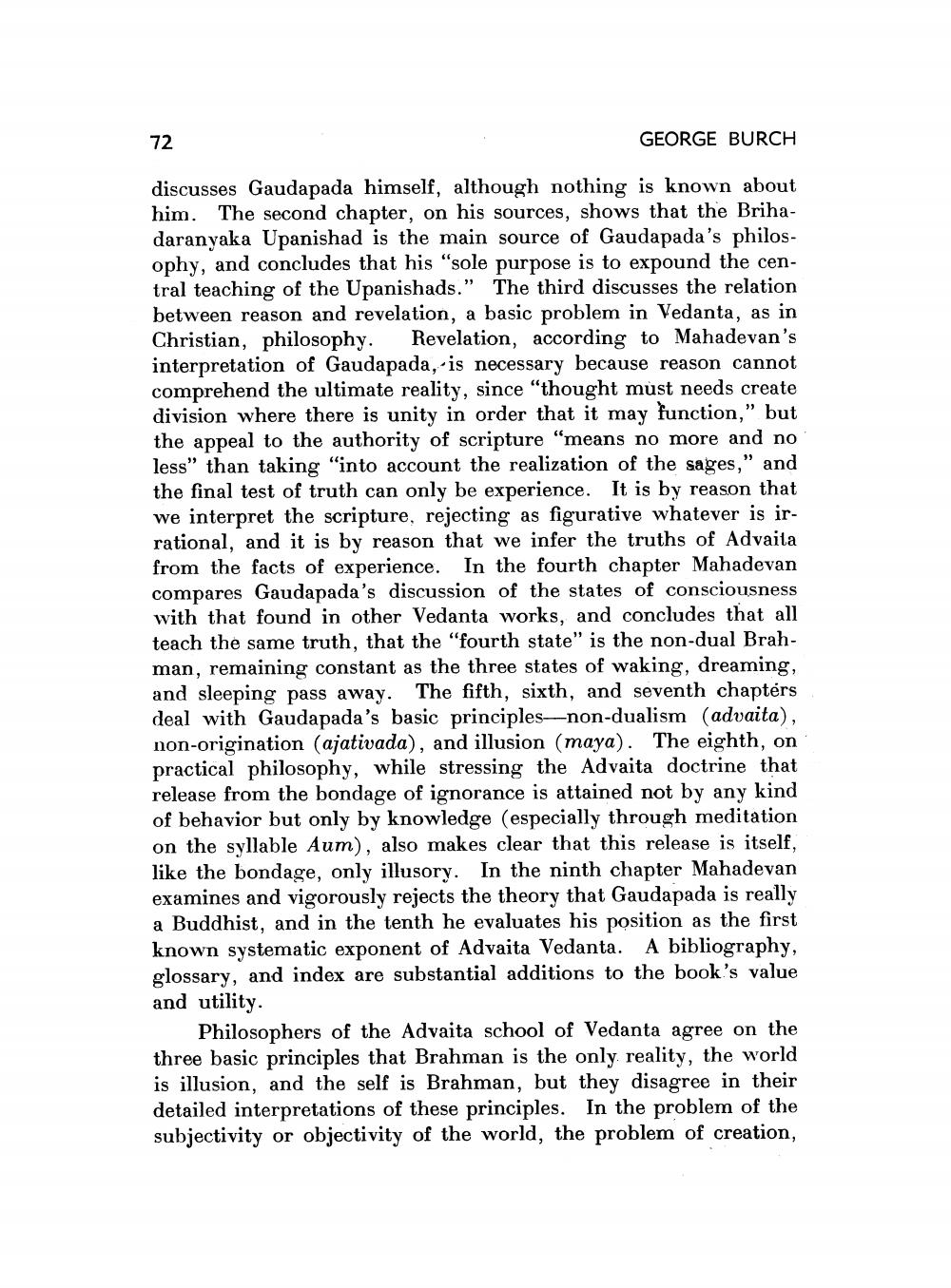Book Title: Recent Vedanta Literature Author(s): George Burch Publisher: George Burch View full book textPage 5
________________ 72 GEORGE BURCH discusses Gaudapada himself, although nothing is known about him. The second chapter, on his sources, shows that the Brihadaranyaka Upanishad is the main source of Gaudapada's philosophy, and concludes that his "sole purpose is to expound the central teaching of the Upanishads." The third discusses the relation between reason and revelation, a basic problem in Vedanta, as in Christian, philosophy. Revelation, according to Mahadevan's interpretation of Gaudapada,-is necessary because reason cannot comprehend the ultimate reality, since "thought must needs create division where there is unity in order that it may function," but the appeal to the authority of scripture "means no more and no less” than taking "into account the realization of the sages," and the final test of truth can only be experience. It is by reason that we interpret the scripture, rejecting as figurative whatever is irrational, and it is by reason that we infer the truths of Advaita from the facts of experience. In the fourth chapter Mahadevan compares Gaudapada's discussion of the states of consciousness with that found in other Vedanta works, and concludes that all teach the same truth, that the "fourth state" is the non-dual Brahman, remaining constant as the three states of waking, dreaming, and sleeping pass away. The fifth, sixth, and seventh chapters deal with Gaudapada's basic principles-non-dualism (advaita), non-origination (ajativada), and illusion (maya). The eighth, on practical philosophy, while stressing the Advaita doctrine that release from the bondage of ignorance is attained not by any kind of behavior but only by knowledge (especially through meditation on the syllable Aum), also makes clear that this release is itself, like the bondage, only illusory. In the ninth chapter Mahadevan examines and vigorously rejects the theory that Gaudapada is really a Buddhist, and in the tenth he evaluates his position as the first known systematic exponent of Advaita Vedanta. A bibliography, glossary, and index are substantial additions to the book's value and utility. Philosophers of the Advaita school of Vedanta agree on the three basic principles that Brahman is the only reality, the world is illusion, and the self is Brahman, but they disagree in their detailed interpretations of these principles. In the problem of the subjectivity or objectivity of the world, the problem of creation,Page Navigation
1 ... 3 4 5 6 7 8 9 10 11 12 13 14 15 16 17 18 19 20 21 22 23 24 25 26 27 28 29
